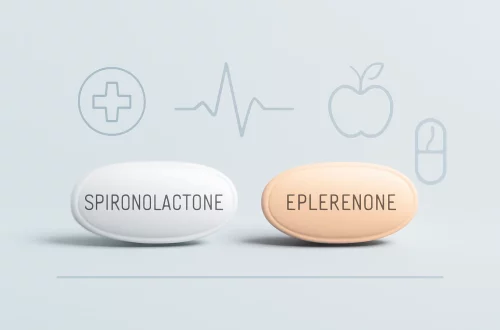
Benefits of Cow Bones for Dogs: A Delicious and Nutritious Treat
Dogs are often regarded as a part of the family, and as any responsible pet owner knows, providing them with a balanced diet is essential for their health and happiness. Among the various treats available, cow bones have gained popularity for their unique benefits. These natural chews not only offer a delightful crunch that dogs love but also pack a nutritional punch that can contribute to their overall well-being.
Cow bones are rich in essential nutrients, making them an attractive option for pet owners looking to enhance their dog’s diet. Additionally, chewing on bones can help maintain dental health by reducing plaque and tartar buildup. Beyond the immediate benefits, the act of chewing provides mental stimulation, which is crucial for a dog’s psychological health. With the right precautions and supervision, cow bones can be a safe and enjoyable treat that dogs will eagerly anticipate.
As we explore the various advantages of incorporating cow bones into your dog’s diet, it is essential to understand their composition, how they can contribute to a dog’s health, and the best practices for feeding them. This approach ensures that your furry friend enjoys their treats while maintaining optimal health.
Nutritional Value of Cow Bones
Cow bones are not just a tasty treat; they are packed with nutrients that can significantly benefit your dog’s health. First and foremost, they are an excellent source of calcium and phosphorus, two essential minerals vital for maintaining strong bones and teeth. These minerals play a crucial role in the development and maintenance of a dog’s skeletal structure, especially in growing puppies.
In addition to calcium and phosphorus, cow bones contain collagen, which is important for joint health. As dogs age, they may experience joint issues, and incorporating collagen-rich foods into their diet can help support joint flexibility and mobility. Chewing on bones can promote the production of synovial fluid, which lubricates joints and aids in preventing arthritis.
Furthermore, cow bones are a natural source of protein, which is essential for building and repairing tissues in the body. Protein is crucial for maintaining a healthy coat, supporting muscle development, and ensuring that your dog has the energy needed for daily activities. The marrow inside the bones is also rich in fats and nutrients, providing an additional energy source that can be particularly beneficial for active dogs.
It’s important to note that the nutritional benefits of cow bones can vary depending on the type of bone and how it is prepared. Raw bones are generally considered safer and more nutritious than cooked bones, as cooking can change their structure and make them brittle, potentially leading to splintering. Always choose high-quality, raw cow bones from reputable sources to ensure that your dog receives the maximum nutritional benefits.
Dental Health Benefits
One of the most significant advantages of giving cow bones to dogs is their ability to promote dental health. Dogs naturally have a strong urge to chew, and providing them with appropriate chewing options can help fulfill this instinct while also keeping their teeth clean. The act of chewing on bones can help scrape away plaque and tartar, which are common culprits behind dental diseases in dogs.
Regular chewing can lead to healthier gums and fresher breath. The abrasion caused by chewing on the bone acts as a natural toothbrush, helping to reduce the buildup of harmful bacteria in the mouth. This is especially beneficial for dogs that may be prone to dental issues or those who dislike traditional tooth brushing.
Moreover, maintaining good dental health is crucial for a dog’s overall well-being. Poor dental hygiene can lead to more severe health problems, including infections that can affect other organs. By incorporating cow bones into your dog’s diet, you are not only providing them with a tasty treat but also contributing to their long-term health through improved oral hygiene.
However, it is essential to supervise your dog while they are chewing on bones to ensure they do not bite off large pieces that could pose a choking hazard. Choosing appropriately sized bones for your dog’s breed and size is also key to maximizing safety and enjoyment.
Behavioral and Mental Stimulation
Beyond the physical benefits, cow bones serve as an excellent source of mental stimulation for dogs. Chewing is a natural behavior that allows dogs to explore their environment, and providing them with bones can keep them engaged for extended periods. This mental engagement is vital for preventing boredom, which can lead to destructive behaviors in dogs, such as chewing furniture or digging.
When dogs are mentally stimulated, they tend to be happier and more well-behaved. Chewing on bones can alleviate anxiety and stress, giving dogs a productive outlet for their energy. Additionally, the act of chewing releases endorphins, which can create a calming effect, making bones an excellent choice for anxious or hyperactive dogs.
Interactive chewing also allows dogs to practice their problem-solving skills. They may need to figure out how to access the marrow inside the bone or choose the best way to hold the bone while chewing. This kind of engagement is particularly beneficial for young puppies that are still learning and developing their cognitive skills.
Moreover, incorporating cow bones into your dog’s routine can strengthen the bond between you and your pet. Offering bones as a treat or reward during training sessions can enhance positive behavior and create a shared experience that fosters trust and companionship.
As with any treat, moderation is key. While cow bones can be an excellent addition to your dog’s diet, they should not replace balanced meals. Always consult with your veterinarian to ensure that your dog’s diet remains healthy and well-rounded.
Choosing the Right Cow Bones
When it comes to selecting cow bones for your dog, quality and safety should be your utmost priority. Not all bones are created equal, and choosing the right type can significantly affect your dog’s experience and health.
Raw bones are generally the best choice, as they retain their nutritional value and are less likely to splinter than cooked bones. Look for bones that are sourced from grass-fed cows, as they are often higher in nutrients and healthier overall. It’s essential to avoid giving your dog bones that are small enough to be swallowed whole, as this poses a choking hazard.
Consider the size of your dog when selecting bones. Larger breeds may require larger bones to ensure they are safe and enjoyable, while smaller breeds should have appropriately sized bones to prevent any risk of choking. Additionally, bones such as femurs or knuckles are excellent options, as they provide a good balance of chewability and nutrition.
Always monitor your dog while they are enjoying their bone. If you notice any signs of distress or if they begin to break off large pieces, it’s best to intervene and take the bone away. Regularly inspect the bone for signs of wear and tear, and replace it when it becomes too small or brittle.
Lastly, it’s crucial to consult with your veterinarian before introducing cow bones into your dog’s diet, especially if they have any underlying health conditions or dietary restrictions. Your vet can provide guidance on the best types of bones to offer and how often you should include them in your dog’s routine.
In conclusion, cow bones can be a delicious and nutritious treat for dogs, offering a range of health benefits from enhanced dental hygiene to mental stimulation. However, always prioritize safety and quality when choosing bones and consult your veterinarian for personalized advice.
**Disclaimer:** This article is for informational purposes only and should not be considered medical advice. Always seek the guidance of a veterinarian for any health-related concerns regarding your dog.




